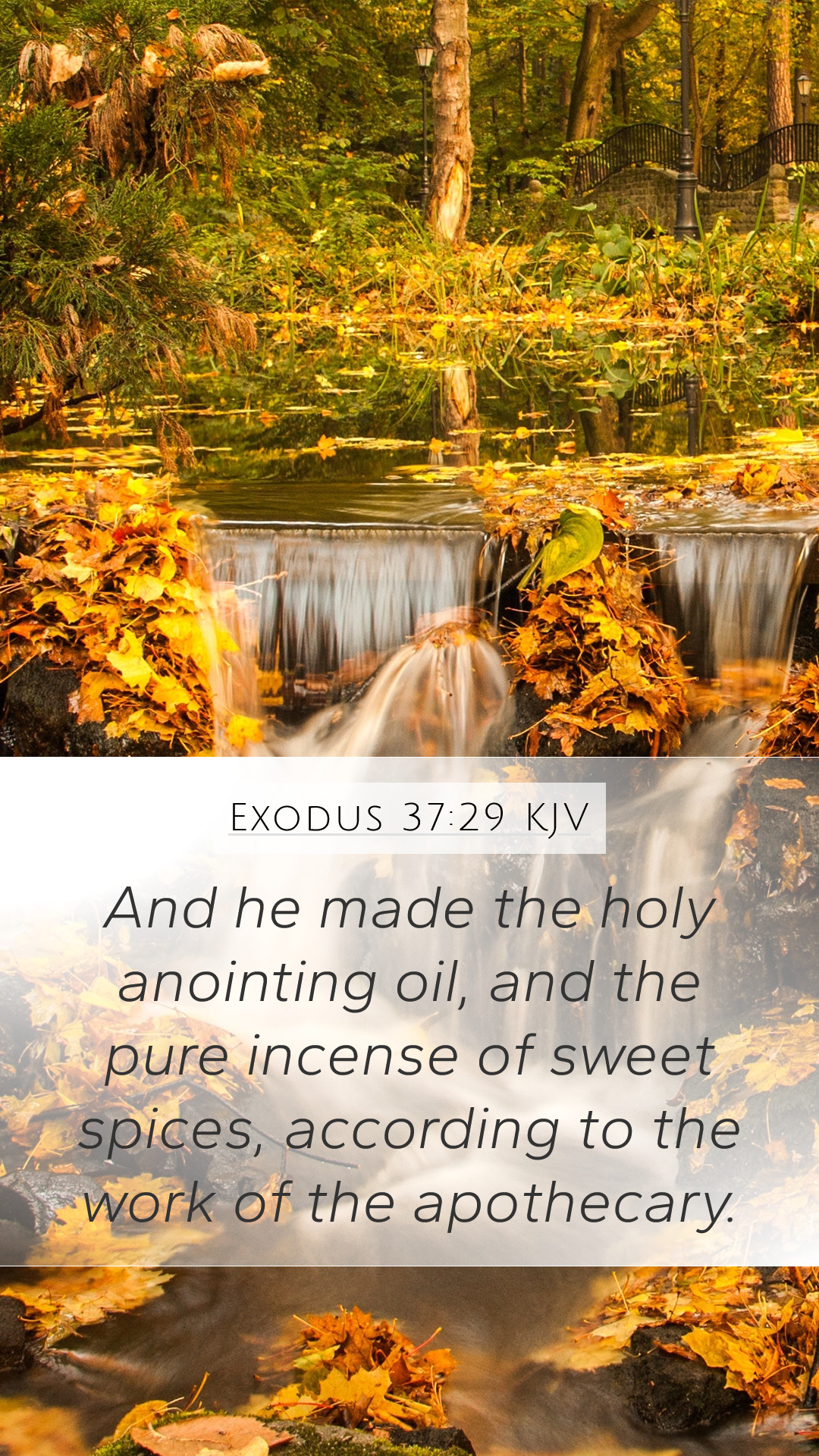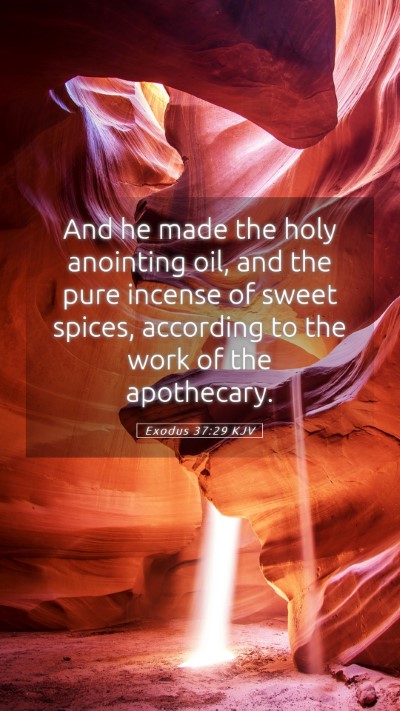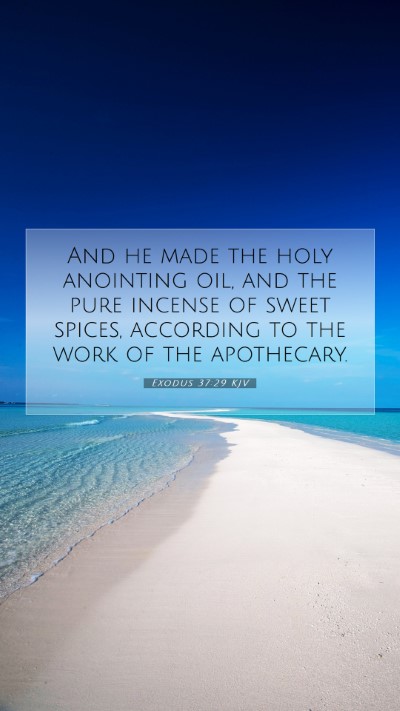Exodus 37:29 - A Comprehensive Insight
The verse Exodus 37:29 states, "And he made the holy anointing oil, and the pure incense of sweet spices, according to the work of the apothecary." This verse is part of the detailed description of the construction of the Tabernacle, its furnishings, and the holy items associated with it. Understanding this verse requires delving into several layers of meaning that have been explored throughout historical biblical commentaries.
Bible Verse Meaning and Interpretations
Various public domain commentaries provide rich insights into the meaning of this verse:
-
Matthew Henry's Commentary:
Henry emphasizes the significance of the anointing oil and incense as sacred elements set apart for God’s service. He points out that the careful preparation symbolized a reverent approach to worship. The oil represents the Holy Spirit and the divine calling of those who would serve in the Tabernacle.
-
Albert Barnes' Notes:
Barnes elaborates on the composition of the anointing oil and incense, highlighting its purity and specific ingredients. He notes the foreshadowing of Christ's prophetic role and the significance of anointing—both in terms of physical symbols and spiritual implications. Thus, this verse connects to the broader narrative of God's presence among His people.
-
Adam Clarke's Commentary:
Clarke comments on the meticulous process described in the verse. He underscores the importance of these items not just for their physical characteristics, but for their symbolic representation of the worship due to God. The incense, he notes, represents the prayers of the saints ascending to God, while the anointing oil signifies sanctification for a holy service.
Understanding Biblical Exegesis and Historical Context
Analyzing Exodus 37:29 in its historical context enhances our comprehension. The construction of the Tabernacle was a pivotal moment in Israel's journey. God instructed Moses to create a place where He would dwell among His people, emphasizing the necessity for holiness and reverence in worship. The oil and incense made described in this chapter illustrate the gravity of this divine presence.
Contextual Significance
This verse is part of a larger narrative focused on the establishment of the priestly system and the worship practices that would define Israel's relationship with God. The anointing oil set apart those chosen for service and represented a divine empowerment for their roles.
Bible Study Insights
When studying this verse, several themes emerge:
-
Holiness in Worship:
The anointing and incense remind modern believers of the need for systemic reverence in worship. Understanding the elements of worship as sacred can inspire deeper faith practices and personal devotion.
-
God's Presence:
This verse offers a lens through which to view God’s desire to be near His people. It portrays a reality where the sacred and the mundane are to be distinguished, encouraging believers to cultivate an awareness of the divine in their lives.
-
Symbolism:
The oil and incense symbolize the work of the Holy Spirit and the prayers of believers. This encourages personal reflection on how one’s life might exemplify the sanctification and the ascent of prayer to God.
Application of Exodus 37:29 in Daily Life
In contemporary application, this verse challenges believers to consider what it means to live a consecrated life. Questions arise regarding what one dedicates to God and how one approaches worship and service within the community of faith. Exploring this verse compels us to rectify our hearts and minds as we enter times of worship or community service.
Bible Cross References
- Exodus 30:22-33: This passage details the ingredients and the divine instructions for the anointing oil.
- Leviticus 8:10-12: This verse describes the actual anointing of the priests as a sign of their sanctification.
- Numbers 4:5-15: This scripture pertains to the handling of the sacred items in the Tabernacle.
- Psalm 45:7: This verse references the anointing, speaking to God’s love for righteousness and hatred for wickedness.
- Revelation 5:8: Discusses the significance of incense as prayers offered to God, linking back to the symbolic meaning in Exodus.
- James 5:14: Highlights the practice of anointing in the New Testament context, reflecting continuity in the use of oil as a holy element.
- 2 Corinthians 1:21-22: This encapsulates the idea of being anointed by God, reinforcing the New Testament understanding of anointing in Christ.
Final Thoughts on Understanding Scripture
Exodus 37:29 serves as a reminder of the sacredness of worship and the importance of approaching God with reverence. The insights drawn from both the historical context and the symbolic meanings embedded in the anointing oil and incense encourage ongoing reflection for believers today. Engaging with this verse can inspire both personal study and group discussions aimed at deepening one’s understanding of worship and service in a modern context.
For those involved in bible study groups or seeking resources for online bible study, considering the implications of Exodus 37:29 can lead to insightful bible study lessons that explore themes of holiness, service, and God’s presence in daily life.


